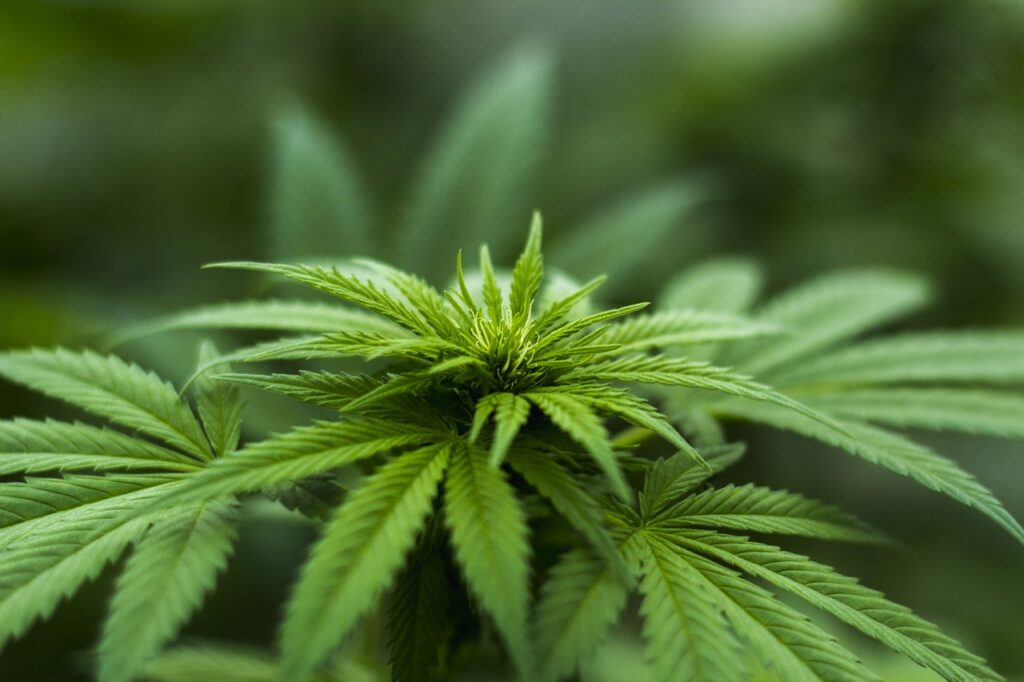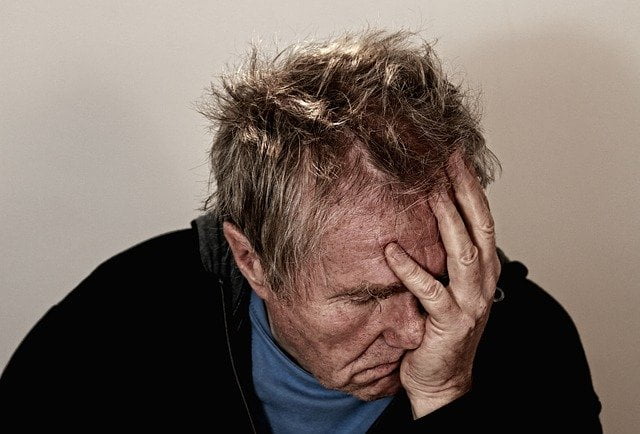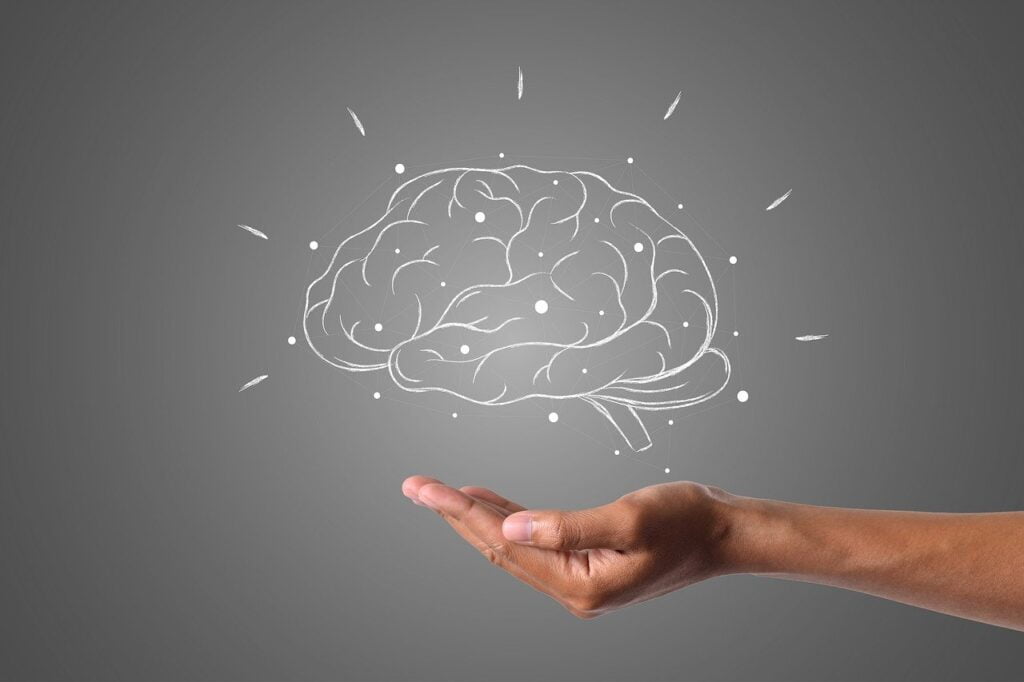- Home
- Types of Addiction
- Skunk Addiction Help & Treatment
Skunk Addiction Help & Treatment
It’s commonly recognised by most people, not just researchers, that cannabis is widely used.
29.6% of people aged 16-59 in the UK admitted to using cannabis at least once in their lifetime.
If you haven’t tried it yourself, you’ll most likely know someone who has.
In the over-55s, treatment for cannabis use has increased by a massive 777%. This is said to be linked to the increase in availability and use of high strains of cannabis, known as skunk.
Cannabis itself is reportedly the most commonly used illegal substance in the world.
It is therefore important to understand more about the substance, what addiction to it looks like, and what addiction treatment there is available.
What Is Skunk Cannabis?

Skunk cannabis is thought to have been created in southern California in the 1970s.
It was created as a hybrid of various strains of THC-heavy cannabis in order to be especially strong.
To look at, skunk refers to the leafy parts of the plant, including the bud, that is usually smoked by users to experience a high.
It contains high levels of THC, the psychoactive chemical, that is naturally occurring in some strains of cannabis.
Usual cannabis strains are around 2-4% in THC, whereas skunk is around 10-14%.
Some strains are even reported to be around 20% in THC.
What Are The Desired Effects Of Skunk?

People ingest cannabis for particular reasons.
Where it is used illegally -which is the case in the UK- users tend to seek the following effects:
- A buzz, euphoria or a high
- Altered perception, which might be linked to perception of time and coordination
- The “giggles”
- General feelings of wellness
- Increased sense of creativity
- Increased libido
- Hunger, also known as “the munchies” – users sometimes enjoy the hunger and eating associated with cannabis use
The Negative Side Effects Of Skunk

As with all substances, there are consequences to cannabis use.
Some of the negative effects can be felt after one experience using the substance:
- Cough, phlegm, mucus production – smokers often need to “clear out” (in the morning especially)
- Dry mouth
- Red eyes
- Impaired memory
- Impaired reaction times
- Nausea and sickness
- Paranoia
- Anxiety
- Heart palpitations
- Lowered blood pressure
- Dissociation
- Hallucinations
Long-term Effects Of Skunk

As with any psychoactive substance used regularly and over a long period of time, there are long-term health effects.
These include:
- Risk of reduced IQ, particularly if use begins in the teenage years
- Increased risk of lung diseases
- Reduced immune system functioning
- Destruction of brain cells
- Reduced fertility
Despite its often lesser status compared to other illicit substances, these effects make cannabis a potentially life-ruining substance to become addicted to.
How Do People Take Skunk Cannabis?

There are different ways that people ingest skunk cannabis.
The vast majority of users tend to smoke it.
It should be remembered that there are toxins in cannabis smoke that enter the lungs when smoked.
It might be smoked in a joint or a water pipe.
Cannabis can also be eaten.
People tend to make “edibles” where they infuse it into baked goods such as cookies and brownies.
Another common way cannabis is ingested is by taking it as an oil.
Whilst CBD oil is legal in the UK, THC oil is illegal.
Any THC oil products that people might come across are unregulated and could actually be dangerous.
But People Say Cannabis Is Harmless?

People often claim that cannabis is harmless and indeed has some medicinal value (the latter will be discussed later).
Where people want to use a substance, they will of course defend it: this is human nature.
Before trying or continuing to use a substance, it’s sensible to collect reliable information yourself.
While many people believe cannabis isn’t addictive, it can be for some.
Research shows that 9% of people who use it become addicted.
Also, if it’s used in adolescence, the risk of addiction in adulthood increases.
There are also the psychoactive effects that need to be considered in relation to THC-heavy strains of cannabis.
As well as addiction, it is also linked to psychosis and schizophrenia.
This is especially so where there is a genetic predisposition towards mental illnesses.
What Makes Cannabis Addictive?

As just mentioned, cannabis isn’t addictive for everyone.
For those who do become addicted, though, this is largely linked to its psychoactive effects.
THC has a significant impact on the brain.
When people become addicted, they come to rely on cannabis in order to feel “normal”.
When people use cannabis regularly, the brain reduces its own production of dopamine, which is the neurotransmitter linked to reward and pleasure.
This is why people come to depend on the substance to feel normal or to experience feelings of pleasure or relaxation.
Medicinal Properties Of Cannabis

It’s evident from research and the increased use of CBD strains of cannabis that there is medicinal value in the substance.
CBD is an active chemical in cannabis which makes a person feel relaxed.
It is not psychoactive, meaning that it doesn’t make the person using it feel high.
CBD is now legal and regulated in the UK.
In relation to illnesses and symptoms, CBD is sometimes prescribed by doctors or used by people to treat the following:
- Epilepsy
- Anxiety
- Insomnia
- Pain (i.e. in relation to cancer pain)
- Nausea (i.e. in relation to chemotherapy)
Skunk is high in THC and therefore isn’t prescribed by doctors in the UK.
There will be some naturally occurring CBD present in skunk strains of cannabis.
Do You Have A Skunk Problem?

If you’re wondering whether you have a cannabis problem, then there are things you can consider that will make this clear.
Firstly, the most obvious sign is whether you experience withdrawal symptoms and how you respond to them.
If you respond to withdrawal by getting more cannabis and using it regularly to stave off the symptoms, then this would definitely be classed as problematic use.
Other signs of a problem include:
- People you care about commenting on your cannabis use, or perhaps your use is affecting your relationships.
- Money issues –Perhaps you’re spending more than you can afford on cannabis, or having to borrow money to fund it.
- Poor mental health -Cannabis addiction can introduce anxiety, paranoia, OCD, panic attacks, depression, low mood and mood swings.
- Struggling to learn new things because of the impact skunk has on the brain.
Signs And Symptoms Of Cannabis Addiction

An addiction is demonstrated when you’re unable to stop using cannabis despite the negative consequences it brings.
Although cannabis is often termed as being psychologically addictive, people often report feeling physical symptoms when they withdraw.
Signs that you might be addicted include:
- Hiding cannabis use from others
- Lying and/or manipulating in order to get money or to use cannabis
- Feeling ashamed or embarrassed about your habit
- Isolating yourself from others
- Lack of attendance to work or school
- Driving under influence
Withdrawal Symptoms Of Cannabis Addiction
- Cravings
- Mood swings
- Low mood
- Aggression
- Restlessness
- Anxiety
- Nightmares
How To Help Someone You Love Who Has A Cannabis Addiction

If you’re concerned that someone you care about has a cannabis addiction, there are things you can do to help.
Initially, you want to learn more about cannabis and how it affects people in terms of their physical and mental health.
This helps you to better manage any unusual behaviours or new family dynamics that might evolve when your loved one is under the influence.
It’s important to be aware that the majority of people who develop addictions go through a period of denial, one that can sometimes go on for years.
While a person is in this space, trying to give them information about rehab often falls on deaf ears.
To be supportive, one of the best strategies you can use is to focus on the healthy and positive behaviours of your loved one.
You might also focus on developing a new hobby or interest with them, helping to improve your relationship whilst encouraging them to do something positive.
Private Treatment For Skunk Addiction

Many people opt to enter a private rehab clinic to be treated for skunk addiction.
This is because of how strong it is, how difficult it can be to quit, and in order to enter a substance-free environment focused on health and wellness.
The majority of people will stay at rehab for 28 days, although those with particular needs may stay for longer.
This gives them the opportunity to immerse themselves in the psychological and alternative therapies on offer.
A Free Assessment

Upon entering rehab, residents undergo a psychiatric assessment.
This enables staff to understand the severity of your addiction and how it’s manifesting in different areas of your life.
It will also make it clear what attention needs to be given to particular elements of your recovery.
If it became apparent that you struggle around expressing emotional responses, for instance, this would be passed on to your therapist so you could work on this area under guidance.
Assessments will also consider factors such as upbringing, mental health and future goals.
The Detox Period

The initial part of your stay at rehab will be focused on detox.
This is where you’ll be supported to become sober and stable.
The detox stage can be quite uncomfortable for many; however, staff are ready and equipped to support you effectively through this process.
Should you need any medication to ease any distressing symptoms, a doctor can provide this.
This might be the case where cannabis has been used to self-medicate for mental illnesses.
Addiction Treatments At Rehab

When you go to rehab, you’ll participate in a timetable of treatments every day.
There are those that are one-to-ones and others that are carried out in a group.
Therapies and activities include:
- Psychological therapies such as Cognitive Behavioural Therapy and Dialectical Behavioural Therapy
- Counselling
- Motivational interviewing
- Brief interventions
- 12 Step groups
- Art and music therapies
- Equine therapies
- Family therapy
In order to benefit from rehab, it’s hugely advisable to fully invest in the therapies you take part in.
Being open and willing to participate will bring you healthier outcomes.
Benefits Of A Private Rehab

Going to a private clinic to be treated for addiction means you’ll experience the best treatment programmes on offer in the UK.
Private clinics and the staff are able to give you full attention, putting you under 24/7 care.
If you were to wake up stressed or panicky in the night, there would be someone available for you to speak with.
Staff use a holistic approach as they understand how complex addiction is.
You get physical, psychological and spiritual support and treatments to help you grow in every area of your life.
Staff in private clinics also specialise in addiction, often having been in recovery themselves.
Finally, upon leaving rehab you’ll have an aftercare programme in place.
Most rehabs have post-rehab groups where residents connect and motivate each other to stay sober.
Aftercare might also include some additional counselling sessions should this be deemed appropriate.
A Dual Diagnosis: Cannabis Addiction And Mental Health Conditions

It’s very common for people who have addictions to also have a mental health condition.
Many people turn to cannabis to self-medicate when they’re experiencing symptoms linked to anxiety and depression, for instance.
When people do this regularly it can create a problem.
Cannabis use is also linked to causing mental health illnesses, such as psychosis and schizophrenia.
At rehab, it might become clear that you have both an addiction and a mental health problem.
This would be referred to as a dual diagnosis.
In such cases, rehab residents are treated with both conditions in mind.
Skunk/Cannabis Addiction Treatment Through The NHS

It’s possible to enter addiction services through the NHS.
The majority of towns have local drug and alcohol services that are free to anyone in the local community who needs support around substance misuse.
Local services offer outpatient services, meaning that you would live at home and travel to the centre for particular treatments.
This might include a one-to-one session with a drug and alcohol worker, or attending a SMART recovery group.
Other Services To Treat Cannabis Addiction

As well the option of attending a private rehab clinic, or a local drug and alcohol service, there are other routes to work on your recovery from cannabis.
- 12 Step groups are available in most communities and online. Marijuana Anonymous is searchable online and you might also find other self-help groups linked to cannabis use.
- Medication for mental health issues linked to cannabis use. This would be accessed through a local GP, but might also be accessible through support from a drug worker.
- Mental health support could come either through a local charity or a GP. This can help you understand how to properly manage mental health symptoms using behavioural techniques.
- Starting new activities can bring you new ways to experience pleasure and also bring value to life in a substance-free way.
- Private counselling is also an option if you’d like input from a professional.
What Treatment Services Should I Access?

If you’ve realised you have a problem with cannabis, it can be really helpful to talk to someone.
Calling the Rehab Recovery team will give you the comfort of talking to a professional who understands the nature of addiction and what your options are.
We treat your information in complete confidentiality.
This can be very reassuring for those who haven’t confided in anyone else that they have a problem.
We can also guide you on how to manage communication with your loved ones about the addiction and your planned recovery.
There are many pathways to support you towards abstinence and healthier future outcomes.
Private clinics do, however, tend to offer the most in relation to supporting people towards sustainable sobriety.
Call the Rehab Recovery team to find out more about your local treatment options and what would suit you most.
Get Help For Skunk Addiction

Finding the right treatment service that can help you live free of an addiction to skunk is often a complicated and time-consuming process.
If you need urgent help and are finding the wide variety of treatments on offer overwhelming, that’s where we come in.
Our skunk addiction treatment assistance gives you:
- A free help and evaluation service to help you choose
- Guidance on the best treatment options for your circumstances
- Assistance in picking out the most cost-effective options
- Information on quality of care, best clinical practice and more
- Complete clarity so you can make the right choice of treatment
Call today in complete confidence on 08000 886 686 to take your first steps on the road to a happy and healthy new life.


